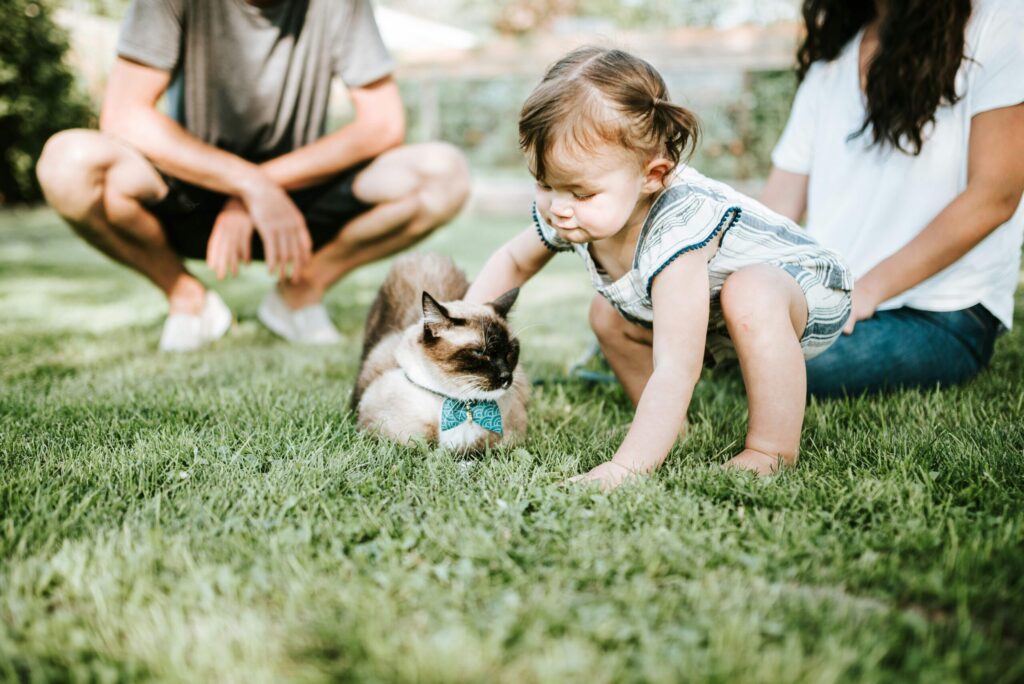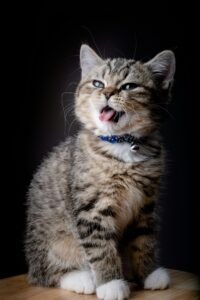
As a cat owner, I’ve often found myself standing in the pet food aisle, staring at labels that proudly say “grain-free,” and wondering if it’s really the healthier choice for my furry friend. Grain-free diets have become popular in recent years, with many brands marketing them as more natural and closer to what cats might eat in the wild. But is grain-free cat food actually safe, or could it cause more harm than good in the long run? In this post, I’ll share the pros and cons of grain-free diets for cats, what veterinarians say, and how you can decide if this type of food is right for your pet.
✅ The Pros of Grain-Free Cat Food
- Closer to a Natural Diet
Cats are obligate carnivores, which means they thrive on protein from meat. A grain-free diet often has a higher meat content, which aligns more closely with their natural eating habits. -
Helpful for Cats With Grain Allergies
Although food allergies in cats are rare, some cats can react to grains such as corn, wheat, or soy. Switching to grain-free food may ease symptoms like itchy skin, vomiting, or diarrhea. -
Easier Digestion for Some Cats
Some cat owners notice their pets have fewer stomach upsets when eating grain-free food, especially if their cat had sensitivities to fillers in regular kibble.
⚠️ The Cons of Grain-Free Cat Food
-
Not Always Healthier
Just because a label says “grain-free” doesn’t mean the food is automatically better. Some brands replace grains with other fillers like potatoes or peas, which may not be ideal in large amounts. -
Possible Link to Heart Disease
The U.S. Food and Drug Administration (FDA) has investigated a potential link between grain-free diets and dilated cardiomyopathy (DCM), a serious heart condition in pets. While research is ongoing, it’s something to keep in mind. -
More Expensive
Grain-free cat food often comes at a higher price. If your cat doesn’t have grain sensitivities, you might end up paying more without real health benefits.

👩⚕️ What Veterinarians Say
Most veterinarians agree that grains aren’t harmful to most cats. In fact, grains can provide valuable nutrients and fiber. Unless your cat has been diagnosed with a food allergy or digestive issue, there’s usually no medical reason to avoid grains completely. Vets often recommend focusing on overall quality — high protein, balanced nutrients, and trusted brands — rather than just looking for the “grain-free” label.
🐱 Should You Feed Grain-Free Cat Food?
If your cat is healthy, happy, and doesn’t have allergies, a regular balanced cat food (with grains) is perfectly safe. However, if your cat shows signs of food sensitivity, your vet might suggest trying a grain-free formula. The key is to watch your cat’s health and behavior closely and always consult your veterinarian before making major diet changes.
🐾 Final Thoughts
Grain-free cat food isn’t automatically the healthier option — it has pros and cons like any other diet. For some cats with allergies or sensitivities, it can be beneficial. For others, it may not make a difference and could even come with risks. The best approach is to talk with your vet, pay attention to your cat’s health, and choose a food that provides complete and balanced nutrition.